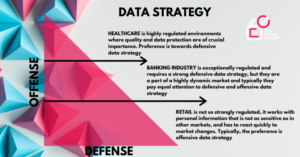
Relationship building in business is the cornerstone of a thriving enterprise, where connections foster trust and collaboration. In today’s competitive landscape, the ability to cultivate meaningful relationships can significantly influence business growth and sustainability, enabling companies to navigate challenges more effectively and seize new opportunities.
As we delve into this topic, we’ll explore various strategies for building and nurturing relationships, from effective networking practices to innovative communication techniques and the importance of team dynamics. Understanding these components is essential for professionals aiming to thrive in their respective fields.
Importance of Relationship Building in Business
Building relationships in business goes beyond mere transactions; it’s about creating connections that foster trust and loyalty. In a successful business environment, strong relationships are pivotal for growth, as they not only enhance collaboration but also create a supportive network that can drive innovation and sustainability. The significance of establishing these connections lies in their ability to contribute to long-term success and stability in a competitive market.Strong relationships have a direct impact on business growth and sustainability.
When businesses prioritize relationship building, they can leverage these connections for networking opportunities, referrals, and increased customer satisfaction. Key components that contribute to effective relationship building within a company include open communication, mutual respect, and a genuine interest in the well-being of clients and colleagues.
Business Networking Strategies
Effective networking is essential for fostering relationships in both personal and professional spheres. Companies can adopt several methods for networking, both online and offline. Online platforms such as LinkedIn provide vast opportunities to connect with industry peers, while offline networking events such as conferences allow for face-to-face interactions that can strengthen bonds.Participating in business networking events is crucial for relationship building.
These events not only present opportunities to meet new contacts but also foster an environment where mutual interests can flourish. Best practices for maintaining professional relationships over time include regular check-ins, sharing valuable resources, and showing appreciation for connections made.
Workplace Communication Techniques
Improving workplace communication is vital to building relationships among team members. Techniques such as active listening, clear and concise messaging, and encouraging feedback can enhance interpersonal dynamics. Transparency in communication plays a significant role in supporting relationship building, as it fosters trust and opens channels for honest discussions.To facilitate relationship management, various communication tools can be employed. Tools such as Slack and Microsoft Teams enable teams to communicate effectively in real-time, while project management platforms like Trello can help keep everyone aligned and informed.
Team Building Activities
Team-building activities are an excellent way to promote relationship building within organizations. A list of engaging activities includes team retreats, problem-solving workshops, and social outings that encourage collaboration and fun. These exercises not only enhance employee morale but also improve collaboration, leading to a more cohesive work environment.Implementing successful team-building initiatives involves clear objectives, planning, and ensuring participation from all team members.
Organizations should assess team dynamics to tailor activities that best foster relationships.
Strategic Planning for Relationship Management
Integrating relationship-building strategies into business strategic planning is essential for long-term success. Steps to achieve this include identifying key stakeholders, setting relationship objectives, and regularly evaluating the success of these strategies. Strategic partnerships can enhance relationship development, paving the way for collaborative projects and shared goals.Alignment between business goals and relationship-building efforts is crucial. When companies ensure that their relationship management strategies support their overall objectives, they can achieve measurable success.
Relationship Building in International Business
Building relationships in a cross-cultural context presents unique challenges. Different countries and cultures have varying approaches to relationship-building, which can impact international business dealings. Understanding these differences is key to navigating global markets effectively.Language and communication styles significantly influence relationship building internationally. Adapting communication to resonate with diverse audiences can enhance understanding and foster stronger connections.
Business Innovation and Relationships
Innovation can profoundly impact relationships with customers and partners. By adopting innovative approaches to relationship management, businesses can stay ahead of the curve and better meet the needs of their clients. For instance, personalized communication strategies can enhance customer experiences, while leveraging technology can streamline communication processes.Ideas for enhancing relationship building through technology include utilizing customer relationship management (CRM) systems and engaging with clients on social media platforms, which can facilitate ongoing interactions.
Sales Management and Relationship Building
Effective sales management is closely linked to strong customer relationships. Sales professionals can build rapport with clients through personalized communication, understanding client needs, and providing valuable solutions. Measuring relationship quality can involve tracking customer satisfaction scores and engagement levels.
Marketing Direct and Customer Relationships
Direct marketing efforts are instrumental in strengthening customer relationships. Techniques to personalize marketing messages include targeted email campaigns and tailored offers based on customer preferences. Customer feedback plays a critical role in relationship building, as it allows businesses to understand client needs and enhance their marketing strategies accordingly.
Risk Management and Relationships
Building relationships can significantly mitigate risks in business operations. Trust is a fundamental element in managing these risks effectively, as strong relationships enable open communication and swift resolutions to potential issues. Examples of risk management strategies that rely on strong relationships include collaboration with suppliers and maintaining clear lines of communication with stakeholders.
Business Outsourcing and Relationship Building

Establishing strong relationships with outsourcing partners is vital for success. Trust and communication are key elements in fostering successful outsourcing relationships. Guidelines for evaluating and choosing outsourcing partners should revolve around assessing their reliability, communication styles, and mutual goals.
Restaurant Industry and Customer Relationships

Building lasting relationships with customers in the restaurant industry involves creating memorable experiences and exceptional service. Customer service plays a pivotal role in fostering relationships, as attentive and personalized service can make diners feel valued. Ideas for enhancing customer relationships include developing loyalty programs that reward repeat customers and promote engagement.
Career Development and Relationship Building
Job seekers can leverage networking techniques to build relationships during their search. Mentorship is an essential component of career growth and relationship development, providing guidance and opportunities for advancement. Professional relationships can significantly enhance job opportunities, as connections often lead to referrals and insights into job openings.
Venture Capital and Relationship Management
In the realm of venture capital, relationship building is crucial for securing investments. Entrepreneurs should focus on building relationships with potential investors through networking, clear communication, and showcasing their business potential. Effective communication in investor relations is fundamental for maintaining trust and transparency throughout the investment process.
Small Business Strategies for Relationship Building
Small businesses can take actionable steps to develop strong local relationships by actively engaging with their communities. Community involvement is essential for relationship building, as it fosters goodwill and loyalty among local customers. Examples of successful small businesses that excel in relationship management include those that prioritize customer engagement and personalized service.
Final Summary
In summary, relationship building in business is not just a beneficial practice but a vital strategy for long-term success. By prioritizing connections with clients, partners, and colleagues, businesses can foster loyalty, enhance their market presence, and navigate the complexities of modern commerce. Embracing these principles empowers organizations to cultivate a robust network that drives innovation and growth.
FAQ Section
Why is relationship building important in business?
Building relationships fosters trust, enhances collaboration, and leads to improved business outcomes, including customer loyalty and partnership success.
How can I improve my networking skills?
Attend industry events, engage on social media, and follow up with new contacts to strengthen your professional network.
What role does communication play in relationship building?
Effective communication ensures clarity and fosters understanding, which are crucial for building and maintaining strong relationships.
How often should I connect with my professional contacts?
Regular check-ins, such as quarterly or bi-annually, are ideal to maintain relationships without overwhelming your contacts.
What are some common mistakes in relationship building?
Neglecting follow-ups, being overly transactional, and failing to listen can hinder effective relationship building.





